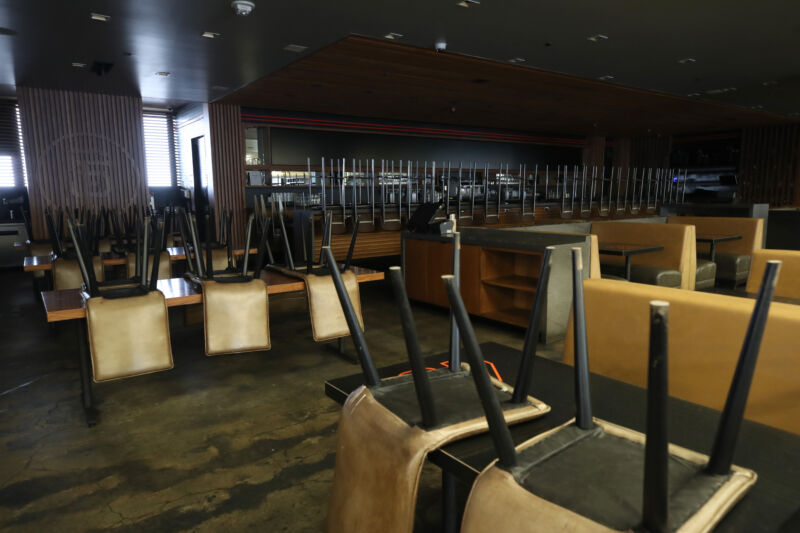
Everyone is stuck at home, which you would think would mean a lot more TV watching, not less. And up to a point, that’s true: millions of us are putting millions of hours into streaming content from Netflix, Disney+, and others. What we aren’t doing, though, is watching cable—especially sports, which aren’t happening in the bars and restaurants we aren’t going to.
Residential customers have been cutting the cord for years, but now commercial subscribers to pay-TV companies have started jumping into the cancellation heap, The Wall Street Journal reports. Restaurants, bars, hotels, and airlines aren’t continuing to pay for pricey channel bundles when nobody is coming in, and even if they could, those viewers would have nothing to watch.
Cable operators continue to charge fees for sports programming that currently doesn’t exist thanks to a fairly tangled web of rights and contracts. And while some customers could receive rebates down the line, managing cash flow today may be easier if you just cancel the package altogether. That’s even truer for small businesses, which are trying to shore up enough resources to survive long-term.
One bar and grill in Arizona told the WSJ cutting off its cable plan is saving the business $1,600 per month. Although the restaurant does anticipate opening for in-person dining in the next weeks, tables will be spaced farther apart, capacity will be limited and the screens dark, as there are no professional or college sports to show.
Companies’ results for the first quarter were only in small part affected by widespread pandemic shutdowns; most stay-at-home orders and school closures came in mid-to-late March, affecting only the last three weeks of the three-month period beginning January 1. Even so, in Q1, AT&T hemorrhaged 900,000 customers, Dish Network was down by 413,000, and Comcast by about 409,000.
AT&T CEO Randall Stephenson, who is expected to leave the company at the end of June, last month described small-business subscriptions as “the most disconcerting, troubling area” of AT&T’s pay-TV business.
Competitors echoed the sentiment. Charter Chief Financial Officer Chris Winfrey said in April of commercial subscriptions, “it will likely take time for this part of the business to recover,” noting that restaurants, bars, and hotels have nixed service until they fully reopen.
Fully reopening, however, is a dicey proposition that will take months. Although some states are already declaring themselves open for business, consumer demand for in-person business remains low in most areas as individuals shelter at home and practice social distancing. Several surveys in the past two weeks—by universities and multiple media outlets—have found that most Americans, by a significant majority, do not think reopening retail, dining, and entertainment establishments is a good idea at this time.
https://arstechnica.com/?p=1674724

